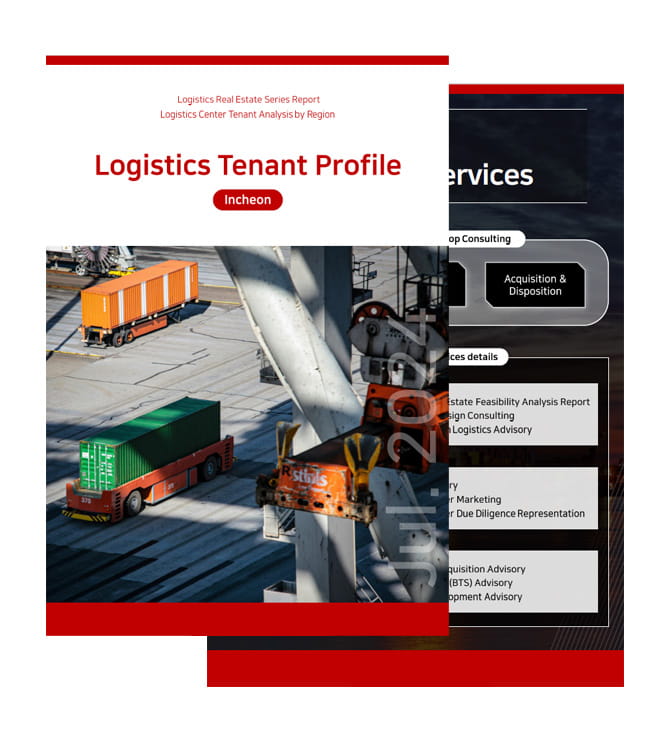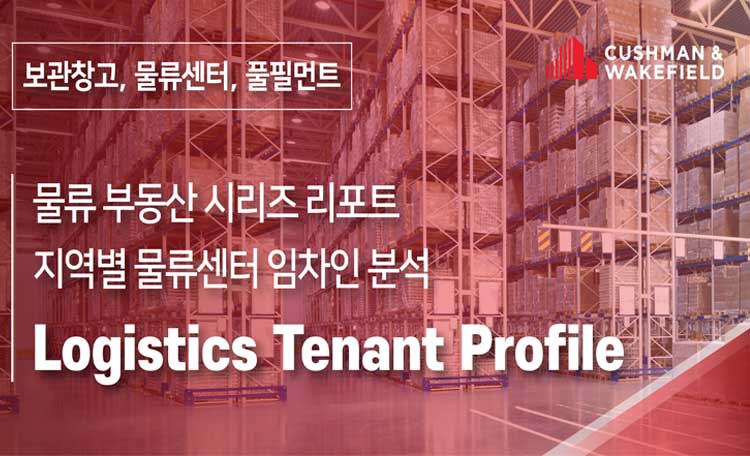Although 10 logistics centers with 394k py, or 28% of the existing supply, have received building permits, only two of them are under construction, and the remaining eight are likely to be delayed or canceled due to deteriorating business conditions, so Incheon is expected to gradually shift to a landlord-dominated market.
E-commerce logistics and 3PL companies occupy about 85% of Incheon's logistics center area, while other industries such as F&B, distribution, publishing, and healthcare operate logistics bases in the rest of the area. Many fast delivery bases and fulfillment centers of e-commerce platforms such as Coupang, 11 Street, and SSG.COM, and import and export logistics bases of 3PL logistics companies such as CJ Logistics, NKG are in operation.
Since 2021, the supply of new warehouses in the Incheon area has increased dramatically, causing vacancy rates to skyrocket and concerns about oversupply to quickly spread. However, due to its location and structural strengths, it has quickly absorbed demand from e-commerce fulfillment companies such as Coupang and 11 Street and has stabilized in a short period, with the vacancy rate of dry warehouses in the western region in the second half of 2023 falling sharply to 0.3% from 4.1% in the first half.
The secret to the rapid stabilization is the abundance of manpower located nearby. Fulfillment, which requires two to three times more manpower than offline distribution centers, has been driving logistics demand in recent years, further increasing the preference for logistics centers in the Incheon area, which are easy to recruit workers. Incheon has a population of about 5 million people in the hinterland, more than 3~5 times larger than Yongin (1.7 million) and Icheon (0.8 million), allowing for a smooth supply of workers at low labor costs.
Wonchang-dong, Incheon, has many residential areas nearby and has excellent public transportation infrastructure that connects not only to Incheon but also to Seoul. In the Yangji-myeon, Yongin, and Majang-myeon, Icheon, the lack of public transportation infrastructure makes it inevitable for employees to commute by large buses, but in Wonchang-dong, Incheon, it is possible to commute to work via Incheon Line 1 and 2, as well as Lines 1 and 7, which connect to Seoul, making it easier to recruit skilled workers.




